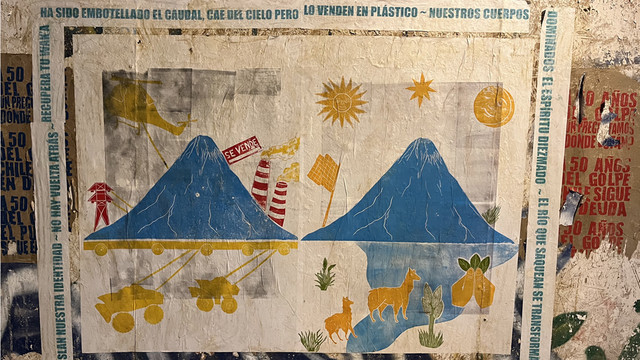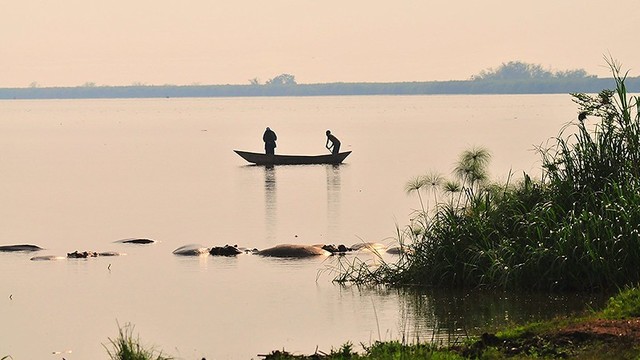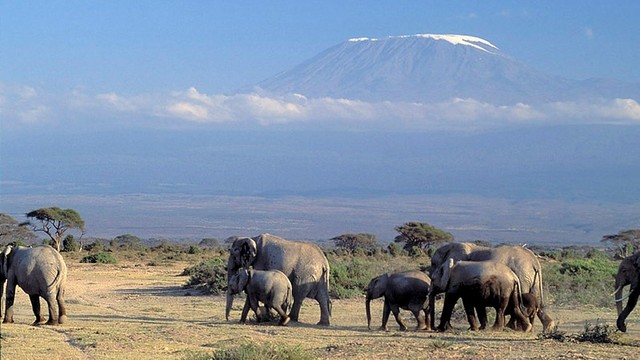Support for green economy surges but crucial gaps remain
Governments, businesses, investors and others are embracing the 'green economy' idea, but differences in the way they interpret it pose barriers to sustainable development, according to a report published today by the International Institute for Environment and Development and the Green Economy Coalition.

While 'green growth' has focused on attracting investment, 'green economy' targets wider and deeper reform to create an economic system that better serves society (Photo: Davetoaster via Creative Commons http://creativecommons.org/licenses/by/2.0/)
The Green Economy Barometer report, produced for a three-day conference on 'real green economies' at Wilton Park this week, provides a current analysis of who is doing what, where, and why.
"The green economy concept is an antidote to the prevailing brown economy, which is a major driver of environmental degradation and inequality," says Oliver Greenfield Convenor of the Green Economy Coalition. "Its purpose is to improve both society and the natural environment. Right now though, the most powerful players are backing a narrower goal of 'green growth', which risks being discredited unless it more effectively tackles inequality."
The report outlines ways to bridge this and other gaps that could jeopardise the transition towards inclusive, sustainable development.
Who are the players?
While the United States and most Latin American countries have not pursued the green economy or green growth concepts, many other nations have. They include: China; Denmark; Ethiopia; Indonesia; Mauritius; Mexico; Morocco; Peru, Vietnam; Philippines; South Africa; South Korea; Thailand, Rwanda, and the Caribbean region.
Other emerging leaders include research institutes, civil society organizations, consultancy firms (such as McKinsey and PWC), the 'B Team' group of business leaders, investors, development banks and bilateral donors.
What are they doing?
- Development banks are providing billions of dollars to support green growth and encourage private sector investment
- Countries, rich and poor, are developing national green economy strategies and legislation
- Companies and international institutions such as the World Bank and UN agencies are developing ways to measure the social and environmental performance of economies, with metrics that go beyond tradition GDP and shareholder value.
- New 'green financial products' — such as green insurance bonds — have also come onto the market. Some of the world's largest investment banks have drafted voluntary guidelines for the development and issuance of green bonds.
While the players are beginning to align their views and activities, there are important gaps.
A question of equity
Although governments and international institutions have stressed the benefits of 'inclusive green growth' for poor people, they have ignored the emerging crisis of rising inequality – which is undermining our economies and our political systems. The nascent global and national architecture for a green economy is ill equipped for delivering more equitable outcomes.
"The challenge is to marry a broad concept of green with equity and inclusion, creating growth at all levels of the economy and ensuring that everyone shares in the benefits," says lead-author Emily Benson. But while the gap between "green economy" and "green growth" has narrowed, it still poses challenges. Most 'green growth' models still envisage that welfare gains will trickle down through existing channel, rather than resulting from progressive economic and social policy.
"In contrast to green growth, which has focused on attracting investment, green economy targets wider and deeper reform to create an economic system that better serves society," says Steve Bass, head of IIED's sustainable markets group. "A green economy should start where the majority of people are, tackling poverty and helping them to develop their assets and meet their needs and aspirations. So it should actively include the informal economy, small and medium enterprises, and locally owned and run solutions — not just big business."



